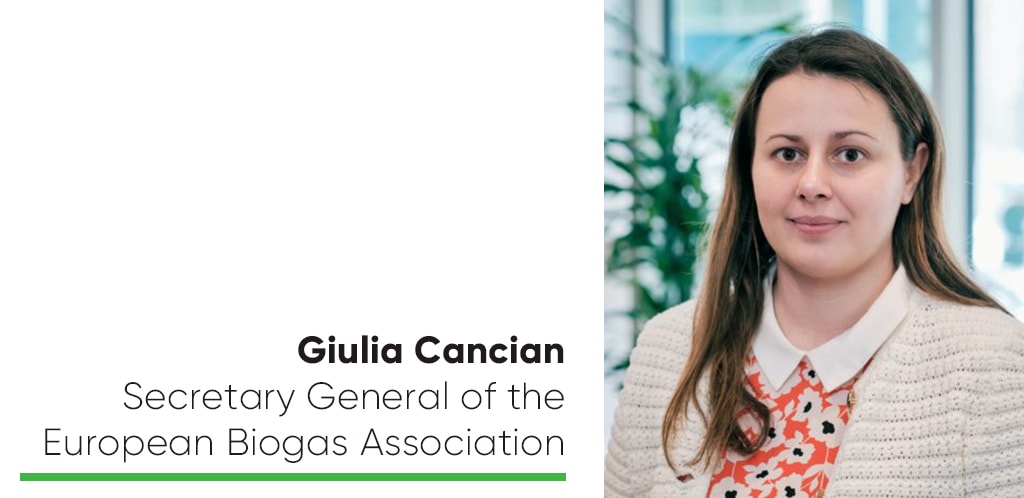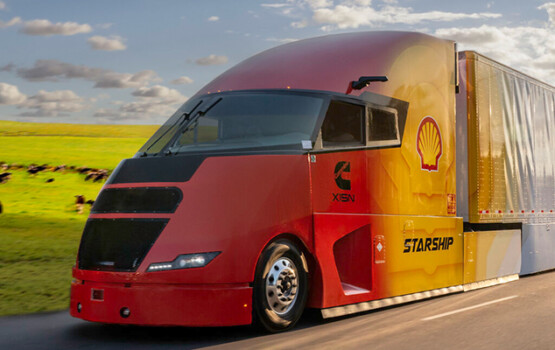Portal for more climate-friendly mobility

More sustainable biogas production
The European Biogas Association’s latest report highlights the intensive efforts of the biogas industry to reduce methane emissions through and in sustainable production. This is important because more biogas is to be produced throughout Europe over the next few years – including in Switzerland.
 Thanks to modern technology, methane emissions can be significantly reduced in the production of biogas. Source: Nature-Energy Wärtsilä
Thanks to modern technology, methane emissions can be significantly reduced in the production of biogas. Source: Nature-Energy Wärtsilä
Together with international experts, the European Biogas Association (EBA) has published a white paper on methane emissions from anaerobic digestion plants known as AD plants. “The biogas and biomethane industry is a major net reducer of methane emissions. A minimal amount of fugitive emissions can still occur during the biogas production process,” explains Giulia Cancian, EBA Secretary General.
 The potential of farmyard manure for biogas production is enormous. Source: CNG-Mobility.ch
The potential of farmyard manure for biogas production is enormous. Source: CNG-Mobility.ch
“Sustainable expansion of the sector to support the energy transition and achieve the goal of 35 billion cubic metres of biogas production by 2030 is an opportunity for the entire value chain,” adds Cancian. “This also helps to achieve efficient plant planning and consistently implement strategies to reduce leaks.” The white paper provides an important basis for this, but also European decision-makers and AD operators themselves.

This is because biogas and its production play a key role in reducing methane emissions in Europe in the energy, agriculture and waste sectors. This has even been recognised by the 2020 EU Methane Strategy. Above all, it is important to demonstrate that methane emissions are avoided when methane from organic substances such as manure and biowaste is brought into the closed and controlled environment of an AD plant instead of entering the atmosphere.
Of course, methane emissions can also occur unintentionally during the production process. However, the white paper concludes that the biogas industry has made great strides in developing strategies to reduce these unwanted emissions and leaks. The state of the art of biogas plants and affected plant components has evolved significantly in recent years, and biogas plant developers and equipment manufacturers are continuously working on further improvements.
 The production of biogas not only produces valuable by-products, but can also reduce the methane emissions that would otherwise automatically disappear into the atmosphere during natural fermentation. Source: CNg-Mobility.ch
The production of biogas not only produces valuable by-products, but can also reduce the methane emissions that would otherwise automatically disappear into the atmosphere during natural fermentation. Source: CNg-Mobility.ch
“The reduction of methane emissions can be further strengthened by sound research that improves the understanding of methane emissions at a technical level. In addition, politicians should acknowledge the mitigation measures taken by individual plants and create further incentives for optimisation,” demands Mieke Decorte, Technical Manager and Project Manager at EBA. “For example, an update of the standard methane emission values of the EU Renewable Energy Directive should take into account these mitigation measures for existing plants and acknowledge the improvements in design and operation over the past decade.”
Reducing methane emissions from biogas production will undoubtedly also soon become an issue in Switzerland: In their Motion 23.3019, the two National Councillors Martin Bäumle and Roger Nordmann demand that the Federal Council create the legal basis for gradually increasing the proportion of renewable gases in Switzerland. This share can be achieved, inter alia, by expanding biogas production, and this should of course be based on the latest technologies.
 The two parliamentarians Martin Bäumle and Roger Nordmann (right) have submitted a motion. Source: Parlament.ch
The two parliamentarians Martin Bäumle and Roger Nordmann (right) have submitted a motion. Source: Parlament.ch
The two Swiss politicians see a rising minimum quota or financial incentives as possible tools for increasing the share of renewable gases. They say that the long-term goal must be to achieve a gas supply that is 100% renewable. To that end, the sustainable potential at home and abroad should be taken into account and the offsetting of imported renewable gas should also be clarified. (jas, 2 May 2023)
You might also be interested in

Shell Starship on record hunt
